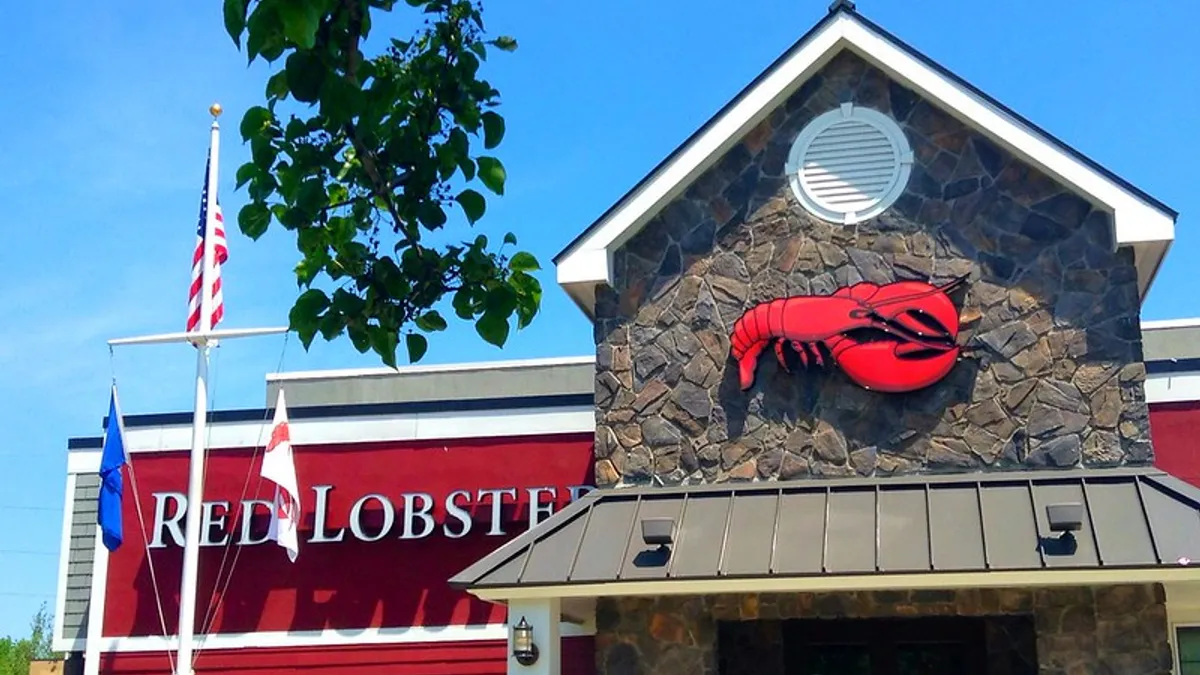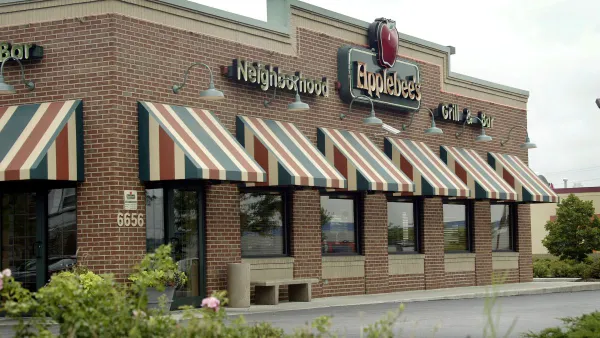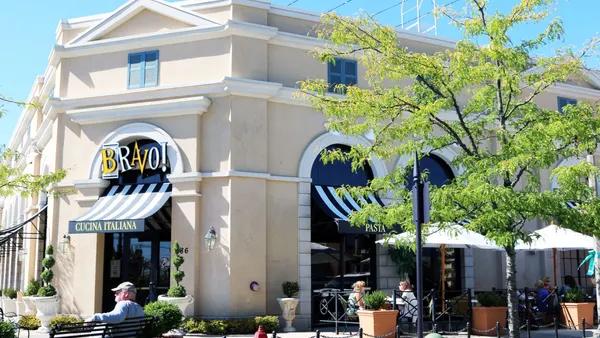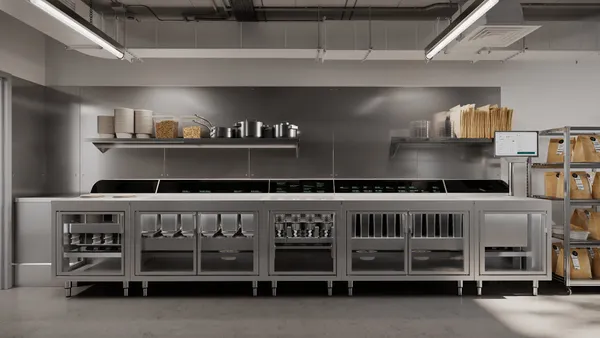Dive Brief:
- Red Lobster on Monday announced the hire of David Schmidt as CFO. Schmidt previously served as group vice president and CFO of Casual Dining Brands for Bloomin' Brands, a role he entered in 2019. He worked at Bloomin' for 16 years across multiple positions.
- Schmidt has over three decades of finance, operations and accounting experience and led the brand overhaul of Bonefish Grill by "simplifying and standardizing operating processes that generate meaningful margin improvement," according to Red Lobster's press release.
- Schmidt succeeds Craig Pommels, who left Red Lobster to become CFO of Cracker Barrel in December. Pommels had served as Red Lobster's CFO for one year, and as senior vice president of the chain for five years.
Dive Insight:
This CFO appointment comes just eight months after Red Lobster hired Kelli Valade as its new CEO. Valade succeeded Kim Lodrup, who retired on Aug. 2. The seafood chain also created a CMO role in January, hiring Patty Trevino to support its marketing, communications, loyalty, culinary operations and customer experience teams.
Fresh new corporate leadership could poise Red Lobster for future growth after the company refinanced the remainder of a $380 million loan in January 2021, a burden that threatened to shutter some restaurant locations.
Red Lobster has also recently come under new ownership. Golden Gate Capital, which bought the restaurant company in 2014 for $2.1 billion, sold its stake in Red Lobster to investor Thai Union Group in the summer of 2020. Terms of the deal were not disclosed.
Like many casual dining chains, Red Lobster's performance has been bruised by pandemic pressure. According to Technomic data, the chain's 2020 sales fell 29.5% and its unit count declined by 0.6%. Though consumer confidence in dining out has increased now that the COVID-19 omicron variant has waned and many diners have received their COVID-19 vaccine boosters, there is still a tough road ahead.
According to the National Restaurant Association's State of the Industry 2022 report, 41% of casual dining operators think it will take more than one more year for business to return to normal, and 15% believe business will never fully bounce back. Food and labor costs are also major stressors for these chains as inflation drives up ingredient prices and the industry's historic labor shortage drags on. Still, 45% of casual dining operators believe sales volumes in 2022 will be higher than in 2021, and a new executive team could help Red Lobster optimize this opportunity.














